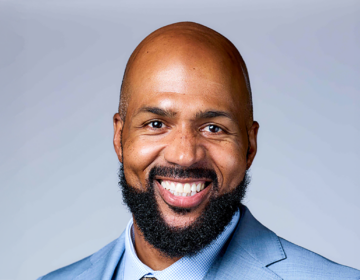As one door closes in Pa., another opens for cyber charter company

(Image via BigStock)
Connections Education LLC became the first firm in years to open a new cyber charter in Pennsylvania, just as one of its former schools branched off. The cyber expansion comes as efforts to pare back state payments to cyber charters stalled in the legislature.
If you’ve watched television in the Philadelphia area recently, you’ve probably met Madison. The precocious computer science major used to be a spokesperson for Commonwealth Connections Academy, Pennsylvania’s second-largest cyber charter school.
In the 30-second spot, Madison demonstrated the benefits of online learning by chatting with a seventh-grade version of herself. The commercial is still airing, but now at the end of her spiel an announcer directs parents to enroll in Reach Cyber Charter, the first new cyber charter to open in Pennsylvania since 2012.
The similarities between the commercials speak to the similarities between the schools.
Reach is managed by Connections Education LLC, a for-profit cyber charter management company with 34 schools across 28 states and a long-time player in the Pennsylvania cyber charter scene. Connections used to run Commonwealth Connections Academy, but the two split earlier this year. A few months later, Reach earned state approval and suddenly Connections had a brand new cyber charter to promote.
Reach Cyber Charter is slated to enroll 500 students in grades K-9, with plans in the next five years to become a K-12 school serving 4,500 kids. Two members of the Reach Cyber Charter board used to serve on the board of Commonwealth Connections Academy, which Connections Education helped found in 2003.
Reach’s founding comes at a time of transition for Connections Education, which is a subsidiary of the global publishing giant Pearson LLC.
One school leaves, another arrives
After Connections splintered from Commonwealth Connections Academy in February the school rebranded as Commonwealth Charter Academy (CCA) and announced it would no longer rely as heavily on Connections Education for back-office services. CCA has more than 9,000 students, and had been a significant source of revenue for Connections Education. The school sent over $55 million to Connections in 2013, according to the school’s most recent tax filings.
But as one school spun out of Connections’ orbit, the cyber charter chain quickly filled the void. Three months later, in May, Connections earned state approval for Reach.
That chain of events is significant for a couple of reasons. First, it ends a de-facto moratorium on new cyber charters, which have inspired debate as they’ve proliferated in Pennsylvania. Second, it ensures one of the country’s cyber charter giants will maintain its presence in a state where online charters have a large footprint.
Pennsylvania has more than 34,000 students in 13 cyber charter schools, making it the state with the second-highest number of cyber charter enrollees. Connections, meanwhile, is the nation’s second-largest cyber charter management company, with 23 percent of all cyber students enrolled in Connections-affiliated schools, according to data collected by the National Education Policy Center.
There are strong ties between CCA and Reach Cyber Charter, which is perhaps not surprising given Connections Education’s foundational role in each school. The television advertisements for Reach, in fact, are nearly identical to those once used for Commonwealth Connections Academy, but with Reach swapped in at the very end of the spot.
Two members of the new Reach Cyber Charter board, including board president David Taylor, are former CCA board members. Taylor was board president at CCA and served on the board from the school’s founding until mid-2014.
In 2015, Connections contacted the long-time cyber advocate to ask if he’d be interested in helping open another charter in Pennsylvania, according to Taylor.
“The opportunity to continue to work with a pioneering education organization like Connections was really appealing,” Taylor said. “I’d had a great experience working with them.”
Connections initially applied for a state charter under the named Advanced Cyber Charter, but was rejected. A naming conflict prompted the group to change its title to Reach Cyber Charter. The state approved Reach Cyber Charter in May.
The state had rejected 17 cyber charter applications between 2012 and 2015. Reach was the only charter to seek state approval for fall 2016.
A surprising approval
On the surface, it’s surprising Pennsylvania’s streak of rejecting cyber charter applicants would end under the administration of Gov. Tom Wolf. He is widely seen as a skeptic of the cyber charter sector, if not an outright antagonist. His administration floated the idea of setting a flat rate reimbursement cyber charters, which some saw as a way to elbow cyber charters into insolvency.
Cyber charters, meanwhile, have been hammered from charter opponents and proponents alike for not delivering on their promise. Ten of Pennsylvania’s 13 cyber charters earned an SPP score below 60, the state’s minimum threshold for acceptable academic performance. Commonwealth Connections Academy scored 48.8, placing it sixth among all cyber charters and fourth among the five cybers with more than a 1,000 students.
The state, however, says it had no choice but to approve Reach’s application. The school addressed all of the hang-ups expressed by the state in its initial rejection letter, including concerns that the board of Reach would not be fully independent of Connections, its for-profit management company.
“We really went through every rule and regulation,” said Pat Laystrom, executive vice president of business development at Connections Education. “And we really tried to meet every letter of what was required.”
“We put forward a very high quality application,” said Taylor, the board president. “The denial came in the form of suggested corrections, which was pretty much a roadmap.”
Crucially, Reach demonstrated it was adding something new to the already-crowded cyber charter sector. Reach students will be able to pick from a menu of pacing options. They can attend school from September to June like a traditional student or they can attend school year-round, moving from grade to grade at their own rates.
That distinctive option helped convince the state of Reach’s viability.
“We can’t take any other factors into account, whether they’re climate, whether it’s straight budgetary concerns. The law dictates that we approve, revoke, deny charter applications based on the merit of the application,” said Pedro Rivera, Pennsylvania’s Secretary of Education. “And that’s what we did.”
Even those critical of the cyber charter industry acknowledge the narrow lens Pennsylvania must use when evaluating new applications.
“If Reach Cyber Charter School did in fact address the deficiencies PDE identified in its initial denial, then PDE acted appropriately in granting the charter,” said Jonathan Cetel, Executive Director of PennCAN, a group that typically backs charter growth. “We remain skeptical that a school model where 100 percent of the instruction is provided online can deliver on its ambitious performance goals”
Motivated by money?
Reach’s emergence may stem from Connections Education’s changing relationship with CCA, the school it founded in 2003.
Originally CCA contracted with Connections for nearly all of its services — both educational and back-office — according to school CEO and founder Maurice Flurie III. Over the last five years, Flurie said, CCA began to take more services in-house or look for new contractors. The goal was to find new efficiencies as the school grew and tailor services more specifically to Pennsylvanians. As an example, Flurie noted that it now ships laptops to new students in 48 hours, a process that took 7 to 10 days under Connections Education’s management.
“We have to be good stewards of taxpayer money,” Flurie said. “We have to make sure we’re spending those dollars appropriately.”
Laystrom with Connections Education believes CCA’s evolution was natural for an expanding school.
“They were able to really learn and grow over the years,” said Laystrom. “And so some of those support services that we had initially provided, they simply didn’t need any more.”
In 2015, Connections approached the school and asked to formally sever ties because it no longer felt the school was sufficiently aligned with the Connections model, according to Flurie. After “multiple conversations over weeks and months,” Flurie said, the school agreed to drop Connections from its name but keep the same acronym, CCA.
As CCA peeled away services from Connections, it directed proportionately less money to the for-profit firm. In 2011, according to tax filings, 82 percent of CCA’s expenses went to Connections. By 2013, that number had fallen to 72 percent.
The school sent approximately $47 million to Connections in 2015, according to Flurie. That number will drop to around $23 million this year, he said.
“There’s obviously some lost revenue to them,” said Flurie III. “They’re a for-profit entity. I think they’re looking to recoup some of that revenue in Pennsylvania. They’re very good at starting schools.”
Taylor, the former CCA board chair and Reach board chair, said he doesn’t think Connections Education was motivated by its bottom line. He believes the opportunity to open a truly distinct charter school in Pennsylvania spurred the move.
“We are dedicated to offering something that is new, different, a very high value,” said Taylor. “I personally think has a great opportunity for success.”
Laystrom did say, howevever, it was important to Connections Education that the company have a partner school in Pennsylvania. Partner schools are those Connections considers part of its official cyber charter network, distinguishing them from those schools that simply use some Connections services a la carte.
“We do like to have partner schools in a state because that does utilize all of the products and services that we offer,” she said. “So the motivating factor was really the opportunity to continue to have a wide breadth of products and services in the state that will serve students well.”
WHYY is your source for fact-based, in-depth journalism and information. As a nonprofit organization, we rely on financial support from readers like you. Please give today.





